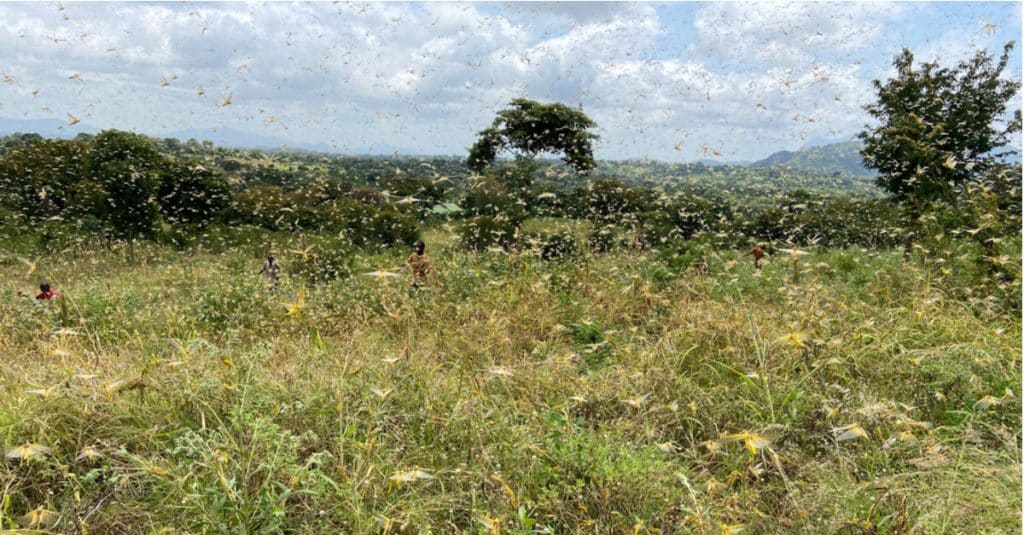A means to fight locust invasions ecologically has just been developed in Senegal. The prototype of the “locust harvester” was presented on October 17th, 2020 in the capital Dakar during a virtual conference on development initiatives. “The harvester catches locusts on the fly by suction through a channel rotating around its axis and possibly adjustable in height, and crushes them and delivers them by spraying them into a remarkable storage bin located in front of the delivery channel,” explains the inventor, Professor Sanoussy Diakité, former Director General of Senegal’s National Office for Vocational Training (ONFP). According to his estimates, the machine can thus suck up almost 960,000 locusts per hour while preserving biodiversity and the soil.
“The idea of inventing this locust harvester is to offer a solution that is not harmful to crops and is more effective than the pesticides used to control locust pests,” says the researcher.
The chemical solution also destroys biodiversity
The massive use of pesticides to control the locust swarms that have been ravaging plantations in East and West Africa since December 2019 is not a solution shared by environmentalists. “These products do not only affect locusts, they also kill beneficial insects such as bees and beetles. And without bees, there is no pollination, so there is no fruit,” says Timothy Munywoki, senior agronomist at Amiran Kenya, a horticultural agribusiness in Kenya, where the ecological impact of insecticides in the fight against locust invasions is currently under debate. The products are also denounced for their degrading effects on crops and soils, thus endangering food security.
Professor Sanoussy Diakité’s machine will therefore make it possible to break with the chemical method of controlling locust invasions. However, the invention will have to be improved, as it can only suck locusts in during their flight. This is why it is necessary to take into account the meteorological data for a better performance of the locust harvester.
Boris Ngounou
